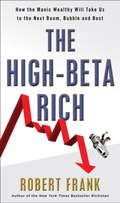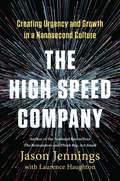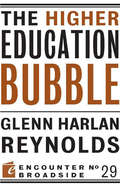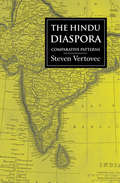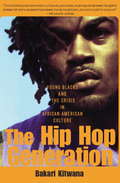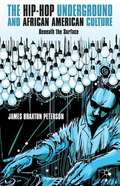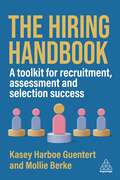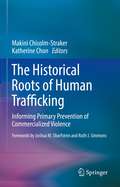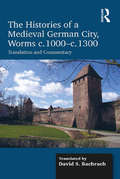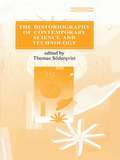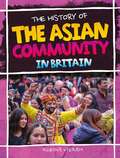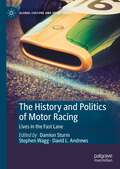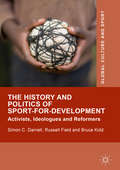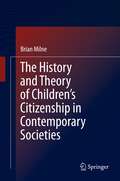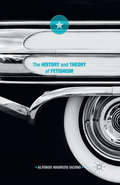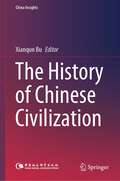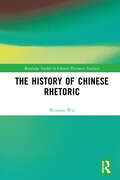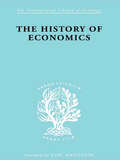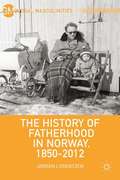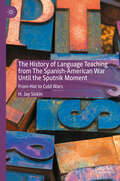- Table View
- List View
The High-Beta Rich
by Robert Frankhigh-beta rich (hi be'ta rich) 1. a newly discovered personality type of the America upper class prone to wild swings in wealth. 2. the winners (and occasional losers) in an economy that creates wealth from financial markets, asset bubbles and deals. 3. derived from the Wall Street term "high-beta," meaning highly volatile or prone to booms and busts. 4. an elite that's capable of wreaking havoc on communities, jobs, government finances, and the consumer economy. 5. a new Potemkin plutocracy that hides a mountain of debt behind the image of success, and is one crisis away from losing their mansions, private jets and yachts.The rich are not only getting richer, they are becoming more dangerous. Starting in the early 1980s the top one percent broke away from the rest of us to become the most unstable force in the economy. An elite that had once been the flat line on the American income charts - models of financial propriety - suddenly set off on a wild ride of economic binges. Not only do they control more than a third of the country's wealth, their increasing vulnerability to the booms and busts of the stock market wreak havoc on our consumer economy, financial markets, communities, employment opportunities, and government finances. Robert Frank's insightful analysis provides the disturbing big picture of high-beta wealth. His vivid storytelling brings you inside the mortgaged mansions, blown-up balance sheets, repossessed Bentleys and Gulfstreams, and wrecked lives and relationships:* How one couple frittered away a fortune trying to build America's biggest house --90,000 square feet with 23 full bathrooms, a 6,000 square foot master suite with a bed on a rotating platform--only to be forced to put it on the market because "we really need the money". * Repo men who are now the scavengers of the wealthy, picking up private jets, helicopters, yachts and racehorses - the shiny remains of a decade of conspicuous consumption financed with debt, asset bubbles, "liquidity events," and soaring stock prices. * How "big money ruins everything" for communities such as Aspen, Colorado whose over-reliance on the rich created a stratified social scene of velvet ropes and A-lists and crises in employment opportunities, housing, and tax revenues. * Why California's worst budget crisis in history is due in large part to reliance on the volatile incomes of the state's tech tycoons. * The bitter divorce of a couple who just a few years ago made the Forbes 400 list of the richest people, the firing of their enormous household staff of 110, and how one former spouse learned the marvels of shopping at Marshalls, filling your own gas tank, and flying commercial. Robert Frank's stories and analysis brilliantly show that the emergence of the high-beta rich is not just a high-class problem for the rich. High-beta wealth has national consequences: America's dependence on the rich + great volatility among the rich = a more volatile America. Cycles of wealth are now much faster and more extreme. The rich are a new "Potemkin Plutocracy" and the important lessons and consequences are brought to light of day in this engrossing book.From the Hardcover edition.
The High-Speed Company
by Laurence Haughton Jason JenningsThe only way to ensure your company's success is to change faster on the inside than the world is changing on the outsideNo one knows the ins and outs of successful companies better than bestselling author Jason Jennings. Back in 2001, with It's Not the Big That Eat the Small, It's the Fast That Eat the Slow, Jennings proved that speed was the ultimate competitive advantage. But in 2015, companies of all sizes still struggle to adapt quickly. They know it's crucial to their future but need help to get everyone implementing speed and urgency at all levels.Jennings and his researchers have spent years up close and personal with thousands of organizations around the world--figuring out what makes them successful in both the short and long term. He understands the real challenges that keep more than eleven thousand CEOs, business owners, and executives up at night. And he knows how the best of the best combine speed and growth to deliver five times the average returns to shareholders.The High-Speed Company reveals the unique practices of businesses that have proven records of urgency and growth. The key distinction is that they've created extraordinary cultures with a strong purpose, more trust, and relentless follow-through. These companies burn less energy, beat the competition, and have a lot of fun along the way.Jennings shows how you can implement the same strategies that have made companies such as CoBank, O'Reilly Auto Parts, Grainger, Henry Schein, Google, and Johnson & Johnson great, including: * Encouraging employees to make the right moves without hesitation. J.M. Smucker has done this well by creating five guiding principles that employees at every level can apply to faster individual decision making. * Doing more to constantly innovate and bring in new customers. Besides spending more than $2 billion on research and development, Procter & Gamble sends its senior executives to the homes of families who use their products in one hundred different countries, to learn their stories and connect with them, gaining fresh insights for new products. * Being transparent about management decisions. Sonic Corp. knows this is the best way to drive trust and engagement with both employees and customers. Breathe easier. Handle any hurdle. Get things done faster. That's the way of the high-speed company . . . and Jennings shows you how to build and sustain your own.
The Higher Education Bubble
by Glenn Harlan ReynoldsAmerica is facing a higher education bubble. Like the housing bubble, it is the product of cheap credit coupled with popular expectations of ever-increasing returns on investment, and as with housing prices, the cheap credit has caused college tuitions to vastly outpace inflation and family incomes. Now this bubble is bursting.In this Broadside, Glenn Harlan Reynolds explains the causes and effects of this bubble and the steps colleges and universities must take to ensure their survival. Many graduates are unable to secure employment sufficient to pay off their loans, which are usually not dischargeable in bankruptcy. As students become less willing to incur debt for education, colleges and universities will have to adapt to a new world of cost pressures and declining public support.
The Hindu Diaspora: Comparative Patterns (Global Diasporas)
by Steven VertovecHinduism outside the Indian subcontinent represents a contrasting and scattered community. From Britain to the Caribbean, diasporic Hindus have substantially reformed their beliefs and practices in accordance with their historical and social circumstances. In this theoretically innovative analysis Steven Vertovec examines:* the historical construction of the category 'Hinduism in India'* the formation of a distinctive Caribbean Hindu culture during the nineteenth century* the role of youth groups in forging new identities during Trinidad's Hindu Renaissance* the reproduction of regionally based identities and frictions in Britain's Hindu communities* the differences in temple use across the diaspora.This book provides a rich and fascinating view of the Hindu diaspora in the past, present and its possible futures.
The Hindu Family and the Emergence of Modern India
by Eleanor NewbiginBetween 1955 and 1956 the Government of India passed four Hindu Law Acts to reform and codify Hindu family law. Scholars have understood these acts as a response to growing concern about women's rights but, in a powerful re-reading of their history, this book traces the origins of the Hindu law reform project to changes in the political-economy of late colonial rule. The Hindu Family and the Emergence of Modern India considers how questions regarding family structure, property rights and gender relations contributed to the development of representative politics, and how in solving these questions, India's secular and state power structures were consequently drawn into a complex and unique relationship with Hindu law. In this comprehensive and illuminating resource for scholars and students, Newbigin demonstrates the significance of gender and economy to the history of twentieth-century democratic government, as it emerged in India, and beyond.
The Hip-Hop Generation: Young Blacks and the Crisis in African-American Culture
by KitwanaThe Hip Hop Generation is an eloquent testament for black youth culture at the turn of the century. The only in-depth study of the first generation to grow up in post-segregation America, it combines culture and politics into a pivotal work in American studies. Bakari Kitwana, one of black America's sharpest young critics, offers a sobering look at this generation's disproportionate social and political troubles, and celebrates the activism and politics that may herald the beginning of a new phase of African-American empowerment.
The Hip-hop Underground And African American Culture
by James Braxton PetersonThe underground is a multi-faceted concept in African American culture. Peterson uses Richard Wright, KRS-One, Thelonius Monk, and the tradition of the Underground Railroad to explore the manifestations and the attributes of the underground within the context of a more panoramic picture of African American expressivity within hip-hop.
The Hiring Handbook: A Toolkit for Recruitment, Assessment, and Selection Success
by Kasey Harboe Guentert Mollie BerkeHow can I improve the quality of my hires? What's the best way to structure interviews and how can I ensure that the questions I ask provide the information I need? How can I make sure that hiring decisions are based on data and not judgements?The Hiring Handbook is a must-have guide for HR professionals, managers and small business owners looking to hire with confidence. This practical toolkit walks you through every stage of the hiring process-from defining job requirements to designing structured interviews-so you can consistently identify and select the best candidates.It covers how to conduct job analyses to pinpoint the skills and attributes that truly matter, write compelling job descriptions that attract top talent, and design structured interviews that lead to fair and accurate hiring decisions. The book also explains how to craft strong, predictive interview questions, evaluate candidates objectively, and minimize bias by adopting a data-driven approach to hiring. Written by hiring experts with deep assessment and selection expertise from global firms like Korn Ferry, Airbnb, and Meta, The Hiring Handbook equips you with the tools to build high-performing teams and make hiring decisions that drive long-term success.
The Hispanic World and American Intellectual Life, 1820–1880 (Studies of the Americas)
by Iván JaksićThis book examines why several American literary and intellectual icons became pioneering scholars of the Hispanic world after Independence and the War 1812. At this crucial time for the young republic, these gifted Americans found inspiration in an unlikely place: the collapsing Spanish empire and used it to shape their own country's identity.
The Historical Roots of Human Trafficking: Informing Primary Prevention of Commercialized Violence
by Makini Chisolm-Straker Katherine ChonA public health approach to human trafficking requires a nuanced understanding of its root causes. This textbook applies a historical lens to human trafficking from expert resources for the multidisciplinary public health learner and worker. The book challenges the anti-trafficking paradigm to meaningfully understand historical legacies of present-day root-causes of human trafficking. This textbook focuses on history’s utility in public health. It describes history to contextualize and explain present times, and provides public health lessons in trafficking prevention and intervention. Public health recognizes the importance of multiple systems to solve big problems, so the chapters illustrate how current anti-trafficking efforts in markets and public systems connect with historical policies and data in the United States. Topics explored include:Capitalism, Colonialism, and Imperialism: Roots for Present-Day Trafficking Invisibility, Forced Labor, and Domestic Work Addressing Modern Slavery in Global Supply Chains: The Role of Businesses Immigration, Precarity, and Human Trafficking: Histories and Legacies of Asian American Racial Exclusion in the United StatesSystemic and Structural Roots of Child Sex Trafficking: The Role of Gender, Race, and Sexual Orientation in Disproportionate VictimizationThe Complexities of Complex Trauma: An Historical and Contemporary Review of Healing in the Aftermath of Commercialized Violence Historical Context Matters: Health Research, Health Care, and Bodies of Color in the United States Understanding linkages between contemporary manifestations of human trafficking with their respective historical roots offers meaningful insights into the roles of public policies, institutions, cultural beliefs, and socioeconomic norms in commercialized violence. The textbook identifies sustainable solutions to prevent human trafficking and improve the health of the Nation.The Historical Roots of Human Trafficking is essential reading for students of public health, health sciences, criminology, and social sciences; public health professionals; academics; anti-trafficking advocates, policy-makers, taskforces, funders, and organizations; legislators; and governmental agencies and administrators.
The Histories of a Medieval German City, Worms c. 1000-c. 1300: Translation and Commentary
by David S. BachrachGermany was the most powerful kingdom in the medieval West from the mid-tenth to the mid-thirteenth century. However, its history remains largely unknown outside of the German-speaking regions of modern Europe. Until recently, almost all of the sources for medieval Germany were available only in the original Latin or in German translations, while most scholarly investigation has been in German. The limited English-language scholarship has focused on royal politics and the aristocracy. Even today, English-speaking students will find very little about the lower social orders, or Germany’s urban centers that came to play an increasingly important role in the social, economic, political, religious, and military life of the German kingdom after the turn of the millennium. The translation of the four texts in this volume is intended to help fill these lacunae. They focus on the city of Worms in the period c.1000 to c.1300. From them readers can follow developments in this city over a period of almost three centuries from the perspective of writers who lived there, gaining insights about the lives of both rich and poor, Christian and Jew. No other city in Germany provides a similar opportunity for comparison of changes over time. As important, Worms was an ’early adopter’ of new political, economic, institutional, and military traditions, which would later become normative for cities throughout the German kingdom. Worms was one of the first cities to develop as a center of episcopal power; it was also one of the first to develop an independent urban government, and was precocious in emerging as a de facto city-state in the mid-thirteenth century. These political developments, with their concomitant social, economic, and military consequences, would define urban life throughout the German kingdom. In sum, the history of Worms as told in the narrative sources in this volume can be understood as illuminating the broader urban history of the German kingdom at the heigh
The Historiography of Contemporary Science and Technology (Routledge Studies in the History of Science, Technology and Medicine)
by Thomas SöderqvistMore than ninety percent of all scientific history has been made during the last half century. So far, however, only a fraction of historical scholarship has dealt with this period. Merely a decade ago, most scientific historians considered recent science - the scientific culture created, lived and remembered by contemporary scientists - an area of study best left to the historical actors themselves.
The History Of The Asian Community In Britain (The History Of #2)
by Rozina VisramDiscover the fascinating history of the Asian community in Britain, from the first settlers to the 21st Century.Newly updated, The History of the Asian Community in Britain explores why people came to Britain, the problems they faced and the contributions these communities have made to British society. Brought to life with case studies and rarely published photographs, this is an opportunity to get up close to the experiences and vital impact Asian people have had in Britain. Meet pioneers such as Sake Dean Mahomed and Jayaben Desai and find out why the Asian community has been fundamental to Britain's success on the world stage.
The History and Politics of Motor Racing: Lives in the Fast Lane (Global Culture and Sport Series)
by David L. Andrews Stephen Wagg Damion SturmThis book explores the history and politics of motor racing, one of the most popular and lucrative elements in the international sport industry. Written by a group of international scholars and motor racing specialists it discusses the sport’s origins, the relationship of motor racing to nation building and modernity (noting its links to fascism and dictatorship), the links between motor racing and the automobile industry, motor racing and the politics both of gender and of race, motor racing, the media and postmodernity, and motor racing, the spatial and globalization. This book speaks to scholars in history, politics, sport studies, the sociology of sport, sport management and cultural studies, along with the many lay readers who are interested in the relationship between motor sport and society.
The History and Politics of Sport-for-Development: Activists, Ideologues and Reformers (Global Culture and Sport Series)
by Bruce Kidd Russell Field Simon C. DarnellThis book focuses on the major social and political forces that have shaped the ways in which sport has been understood, organized, and contested in an effort to engender social change. Integrating the history of international development with the history of modern sport, the authors examine the underpinnings of sport-for-development from the mid-19th through the early 21st centuries. Including both archival research and extensive interviews with more than 15 individuals who were central to the institutions and movements that shaped sport as a force for development, this book will be of particular interest to the growing number of scholars, students, practitioners, advocates and activists interested in the possibilities and limitations of sport-for-development.
The History and Theory of Children’s Citizenship in Contemporary Societies
by Brian MilneThis book examines the notion of children having full citizenship. It does so historically, through intellectual discourse, beliefs, and moral and ideological positions on children. It looks at the status and extent of knowledge of the position of children covering about 2500 years. The book takes European and other cultures, traditions and beliefs into consideration. It reflects on the topic from a variety of disciplines, including social sciences, theology and philosophy. The book places children's citizenship in the centre of children's rights discourse. Part of the work is a critical appraisal of 'children's participation' because it diverts attention away from children as members of society toward being a separable group. The book moves on from child participation using a children's rights based argument toward examination of the relationship of the child with the state, i.e. as potentially full member citizens.
The History and Theory of Fetishism (Marx, Engels, and Marxisms)
by Alfonso Maurizio IaconoThe History and Theory of Fetishism, the expanded version of Iacono's enduring classic Teorie del feticismo and available for the first time in English, aims to provide the historical context necessary to understanding the concept of "fetishism" and offers an overview of the ideologies, prejudices, and critical senses that shaped the Western observer's view of otherness and of his own world. Iacono examines the moment when the Western observer turned his colonizing and evangelizing gaze to continents such as Africa and the Americas, while attempting to simultaneously destabilize and look at his own world critically.
The History of "Zero Tolerance" in American Public Schooling
by Judith KafkaThrough a case study of the Los Angeles city school district from the 1950s through the 1970s, Judith Kafka explores the intersection of race, politics, and the bureaucratic organization of schooling. Kafka argues that control over discipline became increasingly centralized in the second half of the twentieth century in response to pressures exerted by teachers, parents, students, principals, and local politicians - often at different historical moments, and for different purposes. Kafka demonstrates that the racial inequities produced by today's school discipline policies were not inevitable, nor are they immutable.
The History of Chinese Civilization (China Insights)
by Xianqun BuThis book tracks the entire history of Chinese civilization from a broad historical view. Its narrative spans a long period between primitive society and contemporary civilization, which makes it a unique academic works.From an academic point of view, this book is accurate in history and combines historical theories. Although brief, it captures the main thrust of the development of Chinese civilization and achieves a broad outline. Important figures, historical events, and achievements of civilization in all times are involved and discussed.From a theoretical point of view, based on the characteristics of early Chinese civilization, the book discusses the connotation of key concepts such as "civilization" and "Chinese civilization", which have certain theoretical value.From a contemporary and practical perspective, the book helps readers understand the history of Chinese civilization and promotes cultural exchanges between China and the world and leads to a better understanding of today’s China.
The History of Chinese Rhetoric (Routledge Studies in Chinese Discourse Analysis)
by Weixiao WeiThis book challenges the existing misconception that there was no rhetoric in ancient China. Instead, this book provides ample evidence from public speeches in the Xia dynasty and oracle bone inscriptions in the Shang dynasty to public debates about government policies in the Han dynasty to show that persuasive discourse and rudimentary rhetorical techniques already existed in ancient China. Using literary analysis and discourse analysis methods, this book explains how the Mandate of Heaven was inscribed at the core of Chinese rhetoric and has guided Chinese thoughts and expressions for centuries. This book also demonstrates Chinese rhetorical wisdom by extracting many concepts and terms related to language expression, persuasive speech, morality and virtue, life and philosophy, and so on from great Chinese literary works. Well-known names, such as Confucius, Laozi, Sima Qian, Liu Xie, Mozi, Hanfeizi, Guibuzi and so on, are all touched upon with their famous theory and sayings related to and explicated from the rhetorical perspective. Many surprising facts are found by the author and revealed in the book. For example, a thousand years ago, the Chinese author Liu Xie already found that all words have preferred lexical neighbors and structural environment. This is later on ‘discovered’ by corpus linguistics and illustrated, for example, by the concepts of collocation and pattern grammar. This book targets postgraduate students, teachers, researchers and scholars interested in advanced Chinese language and Chinese literature, history, and culture.
The History of Economics (International Library of Sociology)
by Werner StarkFirst Published in 1998. Routledge is an imprint of Taylor & Francis, an informa company.
The History of Fatherhood in Norway, 1850–2012 (Global Masculinities)
by Jørgen LorentzenThe first study of its kind, this book traces 150 years of the history of fatherhood in Scandinavia and shows how Scandinavian gender equality policy has important implications for the rest of the world. Among other interesting findings, Lorentzen reveals that the modern-day rise in equality fathering can be traced back to the 19th century.
The History of Forgetting: Los Angeles and the Erasure of Memory
by Norman M. KleinIn this extraordinary and original work, Norman Klein examines the process of memory erasure in LA.
The History of Gay People in Alcoholics Anonymous: From the Beginning
by Audrey BordenThe History of Gay People in Alcoholics Anonymous documents and honors the ways thousands of LGBT people have carried Alcoholics Anonymous' message. This illuminating chronicle includes interviews and documents that detail the compelling history, recovery, and wisdom of gay people in AA. The book examines the challenges AA faced as the fellowship endeavored to become a more inclusive and cohesive community. The first-person accounts narrate the important work of influential gay and straight AA members that led key events in AA’s history. The author includes material on the steps and traditions of AA, and on becoming an ally to LGBT people on the road to recovery.Topics in The History of Gay People in Alcoholics Anonymous include: the gay origins of AA’s Third Tradition a comparison of treatments for alcoholism and homosexuality compelling portraits of sober gay life in the 1950s and 1960s the debate in AA over meetings for gay alcoholics interviews with members and co-founders of the first gay AA meetings the history of the first gay AA/Al-Anon conference interviews with pioneering gay addiction professionals the history of AA pamphlet “AA and the Gay/Lesbian Alcoholic” Alcoholics Together, and why a parallel AA organization for gay alcoholics formed in southern California strategies AA’s gay members developed to make their meetings simultaneously safe and public—and why some of them are still necessary today much more The History of Gay People in Alcoholics Anonymous is an enlightening book for members of the LGBT and heterosexual recovering community, alcoholism and addiction professionals, as well as physicians, counselors, psychiatrists, psychologists, social workers, clergy, historians, sociologists, educators, students, and anyone interested in learning more about AA or this aspect of the community’s history.
The History of Language Teaching from The Spanish-American War Until the Sputnik Moment: From Hot to Cold Wars
by H. Jay SiskinThis book highlights the lively exchanges that shaped foreign-language pedagogy and educational policy during the first fifty years of the twentieth century. It is critically important to revivify our past, particularly in a field where innovation is conceptualized as progress and where knowledge production is a criterion for success. Modern language teaching began its ascendancy shortly before the turn of the twentieth century. In the academy, this impulse was marked by the founding of the Modern Language Association in 1883. Modern languages were increasingly recognized as possessing the mental and humanistic values that had formerly been the sole province of Greek and Latin. The book provides an overview of the historical, political, and social concerns that preoccupied the nation from 1898 and provides a context for analyzing the developments in the teaching of foreign languages over the course of the following century.
